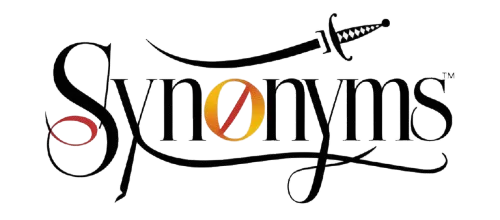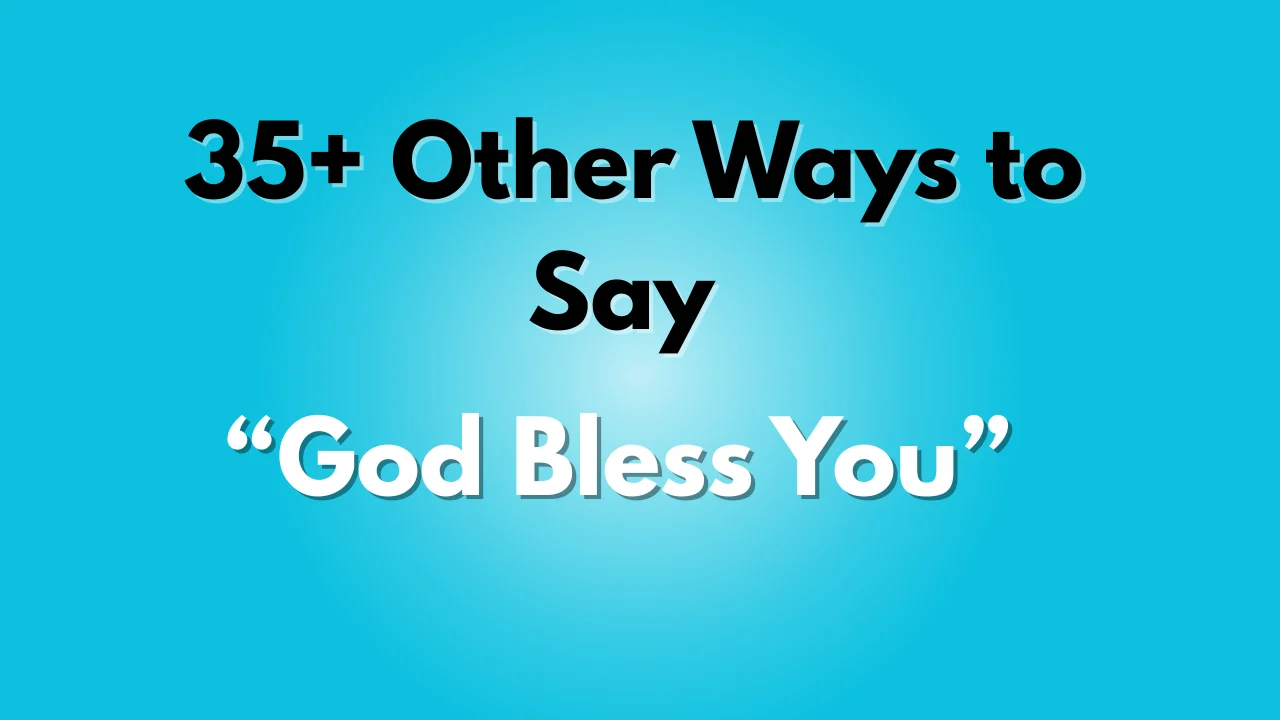“God bless you” is a familiar expression used to show care, kindness, or goodwill toward someone—whether after a sneeze, during a difficult moment, or in response to good news. While the phrase is comforting for many, there are times when you may want a more professional, neutral, spiritual, or modern-sounding alternative, especially in workplaces, diverse environments, or formal communication.
Finding the right wording helps you express warmth and sincerity while respecting different beliefs and personal boundaries. That’s why having several thoughtful, inclusive alternatives allows your message to feel more personal, empathetic, and appropriate for the situation.
In this guide, you’ll find 35+ meaningful, professional, friendly, and spiritual alternatives to “God bless you,” each with its tone, meaning, examples, and best-use scenarios.
Section 1: What Does “God Bless You” Mean?
“God bless you” is a traditional expression used to offer goodwill, protection, comfort, or kindness. It implies wishing someone divine care or positive outcomes. While commonly associated with religious sentiment, it is also used casually after a sneeze or as a gesture of warmth and politeness.
Its emotional tone is comforting, supportive, and caring, but it may not always fit professional or multicultural settings.
Section 2: When to Use It
“God bless you” is commonly used in situations such as:
- Showing support during tough times
“I’m here for you—God bless you and your family.” - Celebrating positive events
“Congratulations on your new home. God bless you!” - After someone sneezes
- Offering general kindness or farewell
It works best in personal conversations, faith-friendly environments, or warm messages. For more formal or neutral settings, alternatives may be more appropriate.
Section 3: Is It Professional?
“God bless you” is polite but not always professional, especially in workplaces that prioritize neutrality or serve diverse clients and teams.
It is acceptable in:
- Faith-based organizations
- Personal emails
- Supportive messages
It is less suitable in:
- Corporate communication
- Intercultural workplaces
- Legal, medical, or HR communication
Using an inclusive alternative helps maintain professionalism while still conveying empathy or goodwill.
Section 4: 35+ Other Ways to Say “God Bless You”
1. Wishing you well
Meaning: A general expression of positivity.
Tone: Polite, friendly.
“Wishing you well during your recovery.”
Use when you want a simple, respectful alternative.
2. Take care
Meaning: A caring closing remark.
Tone: Warm, neutral.
“Take care and feel better soon.”
3. Sending you my best wishes
Tone: Formal, supportive.
“Sending you my best wishes during this time.”
4. Wishing you all the best
Good for personal and professional messages.
“Wishing you all the best on your new journey.”
5. Best wishes to you
Polite and appropriate for any setting.
“Best wishes to you and your family.”
6. Thinking of you
Empathetic and gentle.
“Thinking of you today—hope you’re doing okay.”
7. Wishing you comfort and strength
Ideal for sensitive moments.
“Wishing you comfort and strength in the days ahead.”
8. May you find peace and healing
Spiritual but non-religious.
“May you find peace and healing through this.”
9. Wishing you good health
Perfect after a sneeze or illness.
“Wishing you good health and quick recovery.”
10. Hope you stay safe and well
Professional and caring.
“Hope you stay safe and well during this time.”
Warm & Kind Alternatives
11. You’re in my thoughts
“You’re in my thoughts—please reach out if you need anything.”
12. Sending positive thoughts your way
Positive and uplifting.
“Sending positive thoughts your way today.”
13. Wishing you light and comfort
Soothing and poetic.
“Wishing you light and comfort during this transition.”
14. May today bring you peace
“May today bring you peace and clarity.”
15. Wishing you a bright and hopeful day
Gentle encouragement.
“Wishing you a bright and hopeful day ahead.”
16. Hope you feel better soon
“Hope you feel better soon—rest well.”
17. Sending warmth and kindness your way
“Sending warmth and kindness your way today.”
18. May you be surrounded by support
“May you be surrounded by support and strength.”
19. You have my full support
Strong, reassuring message.
“You have my full support—please keep me posted.”
20. I’m rooting for you
Motivational and encouraging.
“I’m rooting for you every step of the way.”
Spiritual but Inclusive Alternatives
21. Blessings to you
Soft and spiritual.
“Blessings to you and your family.”
22. Stay blessed
Casual and warm.
“Stay blessed and take care.”
23. Many blessings your way
“Many blessings your way as you start this new chapter.”
24. Peace and blessings to you
“Peace and blessings to you during this difficult time.”
25. May you be surrounded by grace
“May you be surrounded by grace and calm.”
26. Sending healing and blessings
“Sending healing and blessings your way.”
27. Grace and peace to you
“Grace and peace to you today.”
28. May your heart be lifted today
“May your heart be lifted today and always.”
29. Wishing you harmony and peace
“Wishing you harmony and peace.”
30. May goodness follow you always
“May goodness follow you always.”
Professional & Neutral Alternatives
31. I hope everything goes smoothly for you
“I hope everything goes smoothly for you this week.”
32. I’m wishing you success
“Wishing you success on your new project.”
33. Hoping only good things come your way
“Hoping only good things come your way today.”
34. You’re in my warmest thoughts
“You’re in my warmest thoughts—take care.”
35. Wishing you strength and resilience
“Wishing you strength and resilience as you move forward.”
36. Sending you support and encouragement
“Sending you support and encouragement.”
37. May positivity surround you
“May positivity surround you today.”
Conclusion
Finding the right alternative to “God bless you” helps you adapt your message to different environments, beliefs, and levels of formality. Whether you’re offering comfort, sharing good wishes, or crafting a professional email, these expressions provide warm, inclusive ways to communicate care and goodwill. Use them naturally and choose the one that best matches the moment, the relationship, and the tone you want to convey. With these 35+ options, you’ll always have the perfect phrase ready.



